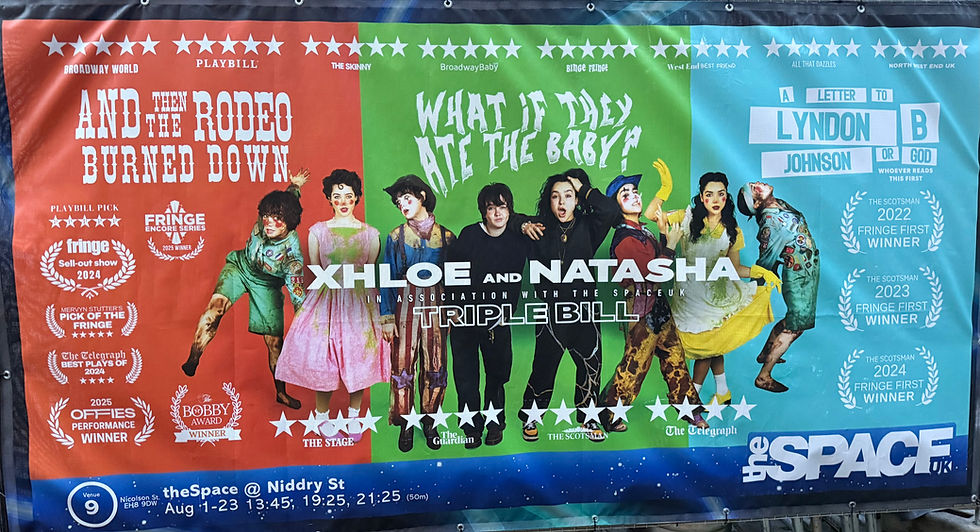Review: Summer Camp for Broken People at Summerhall - Ed Fringe
- Sep 1, 2023
- 3 min read
Review by Carly Fisher
A story like that presented in Summer Camp for Broken People can be a hard one to tell, especially in a one hour play that wants to jump across a time span of over three months. To stage a script like this is not an easy task. To find out that the show is autobiographical makes this achievement even more weighted. With all of this in mind, Emily Beecher has accomplished something special with her play.
With one of the more considered and constructed sets I’ve seen at the Fringe this year, Summer Camp is presented as part of Summerhall’s season. With a full size flat offering a single door and walls adorned with two cupboards, the set is firstly function, secondly used as a clever back drop for the excellent projection mapping that punctuates through the story. Accompanied by an intricate sound design, the play makes tactical use of their elevated production elements to achieve a very smooth and high quality show. Of particular note, the opening scene wherein our protagonist sets up a children’s party shows just how versatile the set is and how well thought out the props are…loved this part (especially the balloons).
Of course, all of this would amount to little if the script and performance given were not at the top of their game. But they are. Summer Camp is a complex, authentic and brave call for action from a system that is not working well enough to support people with mental health issues, and especially, survivors of sexual abuse. Told through the experiences of our protagonist, we pick up months after the assault and see the aftermaths of what this experience does to a person. The script is pacy and though it jumps from month to month, this energy is largely sustained throughout. The tonal variety is executed perfectly - we feel the difference even in the air in the room between the moments of chaos and moments of comparative ‘peace.’
Emily Beecher’s performance is exceptionally strong and you can tell how urgently she wants to share this story to ensure that firstly, others do not feel alone in their journey, and secondly, to question the way that support is offered to people in crisis. This purpose drives her raw, committed and deeply personal performance.
The inclusion of a recurring comparison to the cellular make up of our bodies - how long does it take for our toenails to full grow or our liver to reform? A lot less time that it will take our brains to recover from trauma and tragedy! - works but does sometimes remove me from the otherwise well executed flow of the piece. But this minor critique of the form pales compared to the achievements of this piece.
Thematically and because of its somewhat choppy nature, this show will not be for everyone. However, I do urge all those who can see it to do so. For such a hard and horrible experience to be turned into such clever, detailed and informative Art is a triumph of which Beecher should be exceptionally proud.
Towards the show’s conclusion we are reminded of the truth of the way that women, including young girls, are treated in society. It is a haunting reminder but an important close to the show and whilst I have been careful to include no spoilers in this review, I will say that it is one that will leave you thinking after you leave the show.
I hope too that it is one that will remind us all of the importance of listening to those that need to be heard and of the very important words - ‘I believe you.’

Image Supplied




